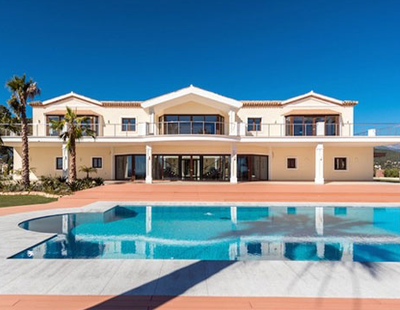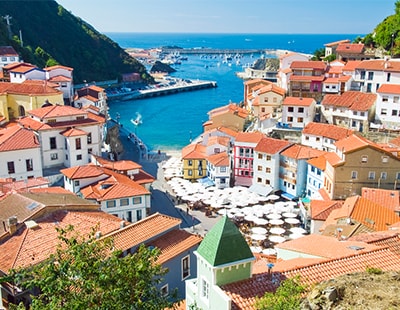But now these Spanish second homeowners are beset by a range of issues created by the Covid pandemic, Brexit and the ongoing uncertainty surrounding non-essential international travel from the UK, Ball says. Factors which are now ‘combining to cast shade’ on these overseas investments.
“Prior to Brexit, British second homeowners enjoyed the same 19% tax rate on their property as Spanish and all other EU nationals,” Ball said. “In 2021, though, they will face a 25% tax hike. Along with new restrictions on how often they can use their property, a collapse in holiday rental returns and new fiscal obligations which many are still simply unaware of.”
According to statistics from the Spanish government, the dream of owning a holiday home in Spain has lured around one million Brits into purchasing property there over the last few decades. Whilst around a third of these villas and apartments belong to long-term expats who are assimilated within the Spanish tax system, the vast majority are owned by British nationals who are living in the UK, Ball claims.
“As well as an increase in the tax rate from 19% to 24%, British second homeowners will also be stripped of valuable tax-deductible allowances, such as mortgage interest and insurance. Two key fiscal changes that can only erode the returns previously enjoyed from a holiday rental investment.”
He went on: “In addition, UK nationals can now only spend 90 days in every 180-day period within Spain and the EU. A restriction which has already caused widespread anguish amongst owners who were previously accustomed to jetting off to their holiday homes as and when they pleased and escaping from Britain’s long, cold winters to enjoy warmer climes.”
The Covid pandemic and resulting travel restrictions have also decimated holiday rental returns, Ball says, leaving many owners with no income from their Spanish investments whatsoever over the last 12 months.
“This situation is now being further complicated by the continued uncertainty surrounding non-essential travel from the UK to Spain beyond the current roadmap milestone of May 17,” Ball continued.
“Media speculation suggests that Spain will not be on the UK government’s Global Travel Taskforce green list of ‘safe’ destinations, thanks to the relatively slow rollout of their vaccination program and high infection rates which appear to be peaking again as a third wave of Covid sweeps across many EU countries.”
Instead, Spain looks likely to be allocated amber status – which will oblige holidaymakers to take numerous additional tests, thus adding to the cost of a break. A move which Ball believes can only further dampen demand and reduce holiday rental returns for second homeowners.
“Many of these owners are also totally unaware of the fact that they are still obliged to pay tax on their holiday home – even if they do not rent it out at all - creating something of a ticking tax time bomb for those who are not fully au-fait with their fiscal responsibilities,” he added.
Spain’s Modelo 210 tax is applied to all non-resident property owners. But while holiday rental returns are submitted every quarter, a tax of 24% is still levied annually against imputed income, even when the property generates no rentals whatsoever.
“This catches many foreign holiday homeowners out. As, after all, it seems somewhat counter-intuitive to have to pay tax when you have no earned income to declare,” Ball said.
“However, the Spanish tax authorities view the situation differently – and deem the ownership of a second home a form of income in itself - as the property could be rented out at any time should the owner choose. Making this more a form of income tax based on the benefit of owning a second home than a property tax per se.”
The amount of tax payable is based on the property’s rateable value, or valor catastral, rather than its market value and these rates are set by local councils in Spain.
“The amount payable usually amounts to somewhere between 1% and 2% of this rateable value – a figure that varies from region to region in Spain,” Ball explained.
“Crucially, failure to pay this Modelo 210 non-letting tax can have serious consequences for owners, especially when it comes to selling a second home in Spain. The Spanish tax authorities also keep a property register and sporadically investigate when no tax returns have been filed, at times issuing fines for non-compliance.”
What will the impact be on Spanish property sales and prices?
Unsurprisingly, Ball says, Brexit and Covid combined to create a 44% fall in completions by UK nationals last year versus 2019 figures, according to Spain’s National Institute of Statistics, whilst overall residential property sales across Spain fell by 17.7% in 2020.
“Figures for the first quarter of 2021 will be released shortly and will reveal the real impact of Brexit for the first time,” Ball commented.
“This drop in demand hasn’t yet worked its way through into price reductions. Indeed, prices in some Spanish regions such as Santa Cruz de Tenerife, Malaga and Alicante actually rose by up to 3% during the first few months of 2021, according to Registradores.org, Spain’s society of notaries.”
However, he adds, according to a recent study of the Spanish real estate market undertaken by leading mortgage lender CaixaBank, residential prices are expected to fall by 6% to 9% over the next two years. This figure is echoed by the Fitch credit rating agency, which is also predicting a 4% to 6% drop in 2021 before recovery sometime in the second half of 2022.
“These figures will also be reflected across all Western European countries according to S&P Global Ratings – who have based their analysis on projected rising unemployment levels as the Covid crisis fully unravels,” Ball concluded.
“There are also likely to be considerable variations in price and demand across Spain’s regions – as foreign buyers – and the British especially - tend to focus on the sunshine coasts of the Mediterranean and the holiday islands of the Balearics and the Canaries.”
The company says it has been contacted by a host of clients who have owned property in Spain for many years but had no awareness of the taxes for non-residents, highlighting how hidden the issue remains.







.png)










Join the conversation
Be the first to comment (please use the comment box below)
Please login to comment